6 common causes of car fires
Car fires are not usually caused by one specific cause but are often caused by a combination of factors ranging from user error, mechanical problems and chemical sources.
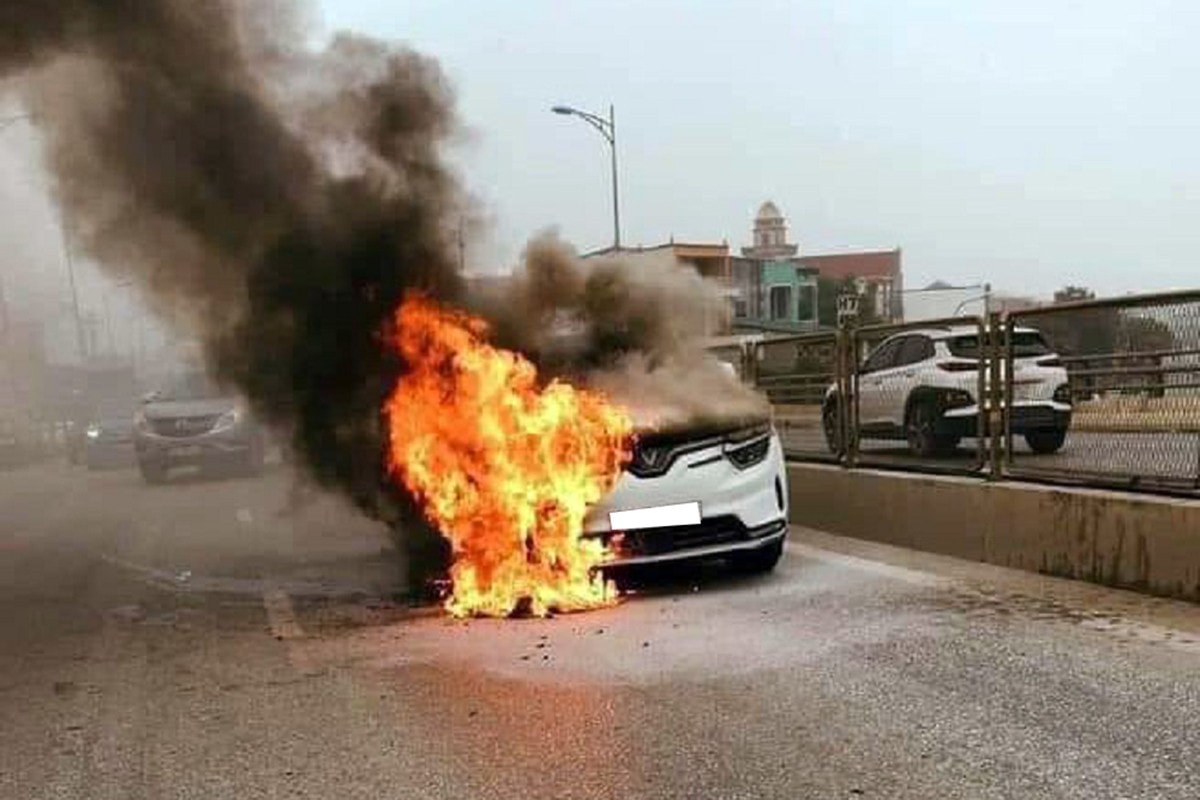 |
In just the past few days, many car fires have occurred consecutively, the cause is unknown. So what are the common causes of car fires, what should users pay attention to in order to prevent them? Below are 6 causes that you need to know.
1. Fuel line system leak
Leaks in the fuel system are the most common cause of vehicle fire risks, so that's why they top this list.
 |
The fuel line system can crack and leak contact points after a period of use, which is really dangerous because leaked fuel is corrosive, toxic and flammable, of which gasoline is one of the most flammable substances.
At temperatures of 7.2 degrees Celsius or higher, gasoline can quickly catch fire when exposed to a spark, and if the temperature reaches 257.2 degrees Celsius, the gasoline will spontaneously combust.
It's not hard to see how fuel spilled onto hot metal or plastic parts could cause a fire to spread quickly.
2. Electrical system error
Electrical system failures take the second spot on the list because they are the second most common cause of car fires. Electrical hazards are not limited to the under-hood area either, as wiring runs throughout the entire vehicle from inside the car doors, under the carpet, under the seat cushions, inside the center console, etc.
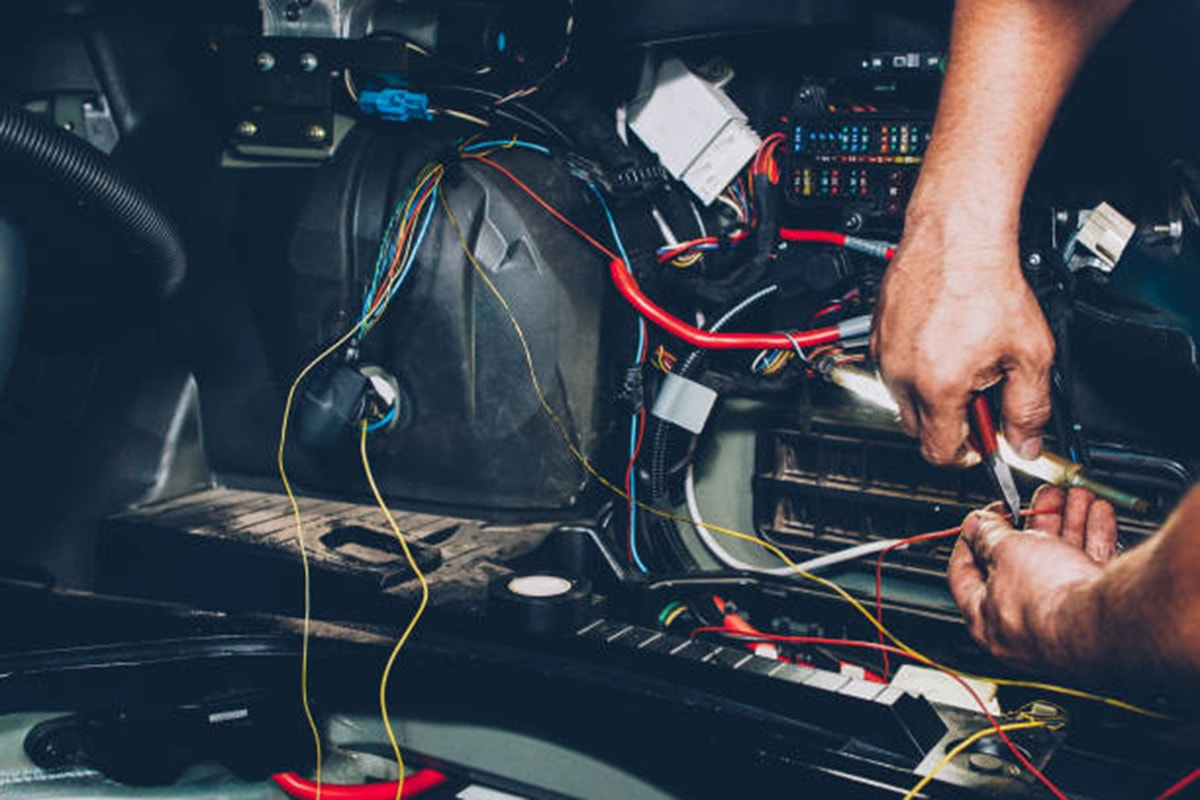 |
When the electrical system short-circuits, sparks will be emitted. These sparks can hit surrounding flammable materials, causing the fire to quickly flare up and spread.
Problems with the car's electrical system can be caused by rats biting, the mechanic not tightening the cooling screws, or arbitrarily adding equipment that does not meet standards, causing overload to the electrical system... In addition, driving in flooded areas, water-contaminated connection points and plugs can also cause electrical short circuits and fires.
3. Batteries of electric and hybrid vehicles
Not long after the Tesla Model S was unofficially crowned the "safest car" by the media, a Tesla Model S caught fire in the fall of 2013.
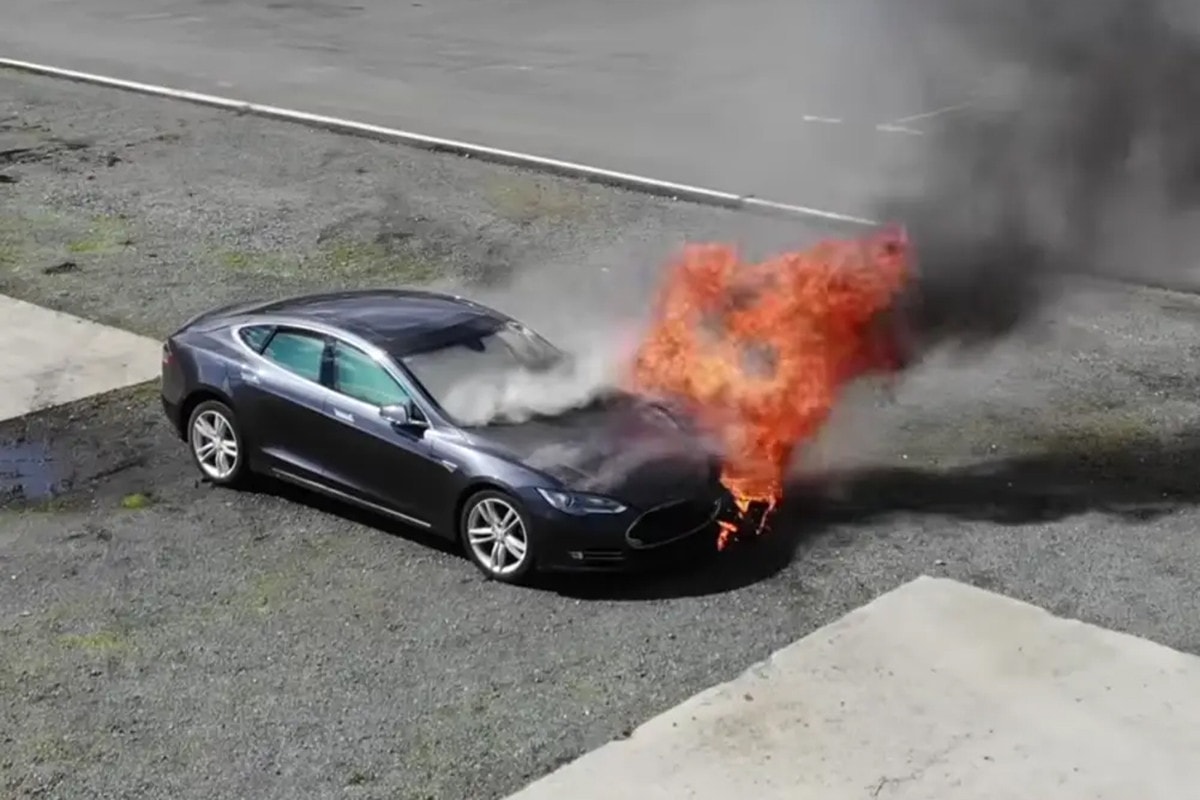 |
That's a shame because the American electric carmaker has repeatedly stressed that its all-electric Model S is immune to the battery-related issues that have plagued previous-generation hybrids and electric vehicles.
The main cause stems from hardware and software errors that control battery operation. It is estimated that about a third of electric vehicle fires occur when parked and not plugged in.
Additionally, studies have shown that hybrid cars seem to be the most prone to catching fire, followed by gasoline cars, and finally electric cars. Of course, since there are still many gasoline cars on the market, they also account for the majority of fires.
4. Engine overheated
An engine overheating and causing a car to catch fire is a classic example of how one problem can lead to another. A car's engine probably won't overheat to the point of spontaneous combustion.
 |
But an overheated engine can cause other parts in the engine compartment such as plastic parts and rubber gaskets to melt, causing internal fluids such as fuel and oil to leak out, causing a fire or explosion.
There are many reasons why a car engine overheats such as: the car lacks coolant, the radiator is dirty, the thermostat is faulty, the radiator fan is malfunctioning, the coolant pump is weak/broken, the car lacks engine oil, the weather is too hot...
5. Design errors
Not all design flaws lead to car fires, but any problem with your car can make a fire more likely. Even so, the probability of a design flaw causing a car fire is very low, less than 1% of all recorded car fires.
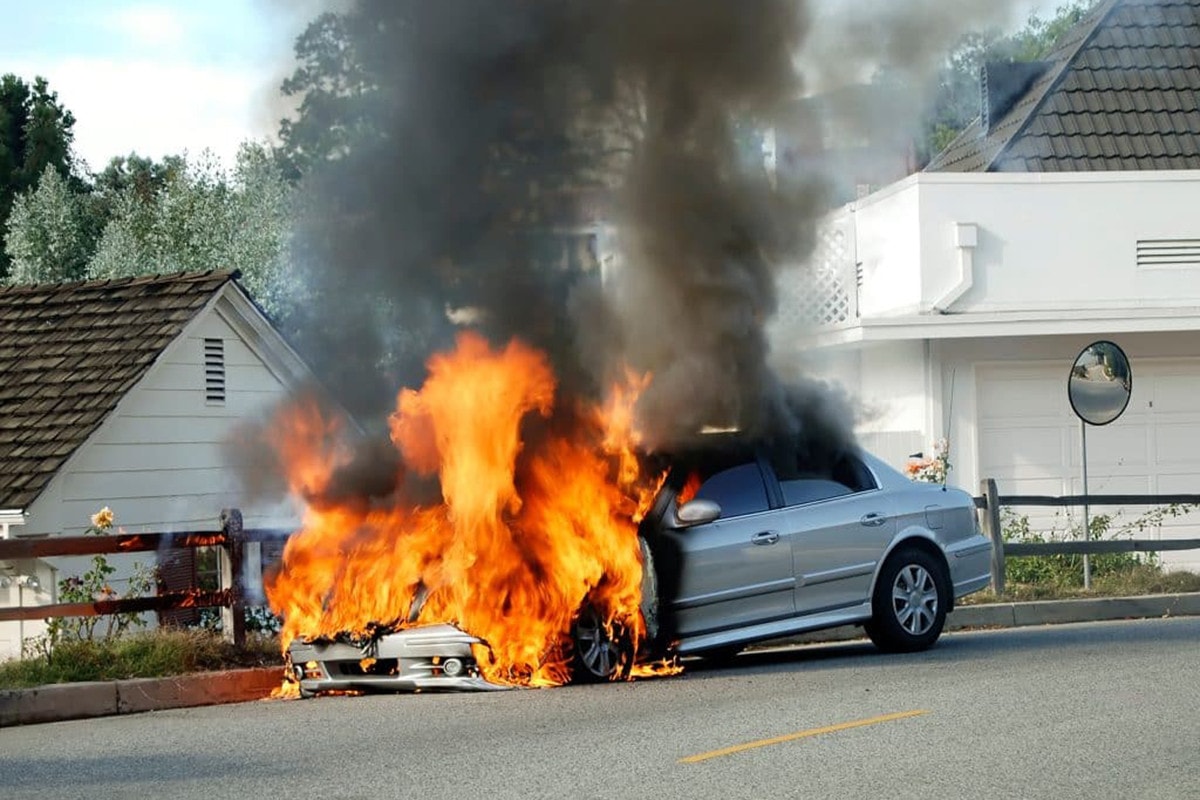 |
Typically, manufacturers will catch wind of the problem before it becomes widespread, and will issue a recall for the fire-prone vehicles to fix the problem.
Since 2012, most major automakers have recalled a total of nearly 12 million vehicles, including gasoline and electric vehicles, globally due to fire risks.
6. Negligent maintenance
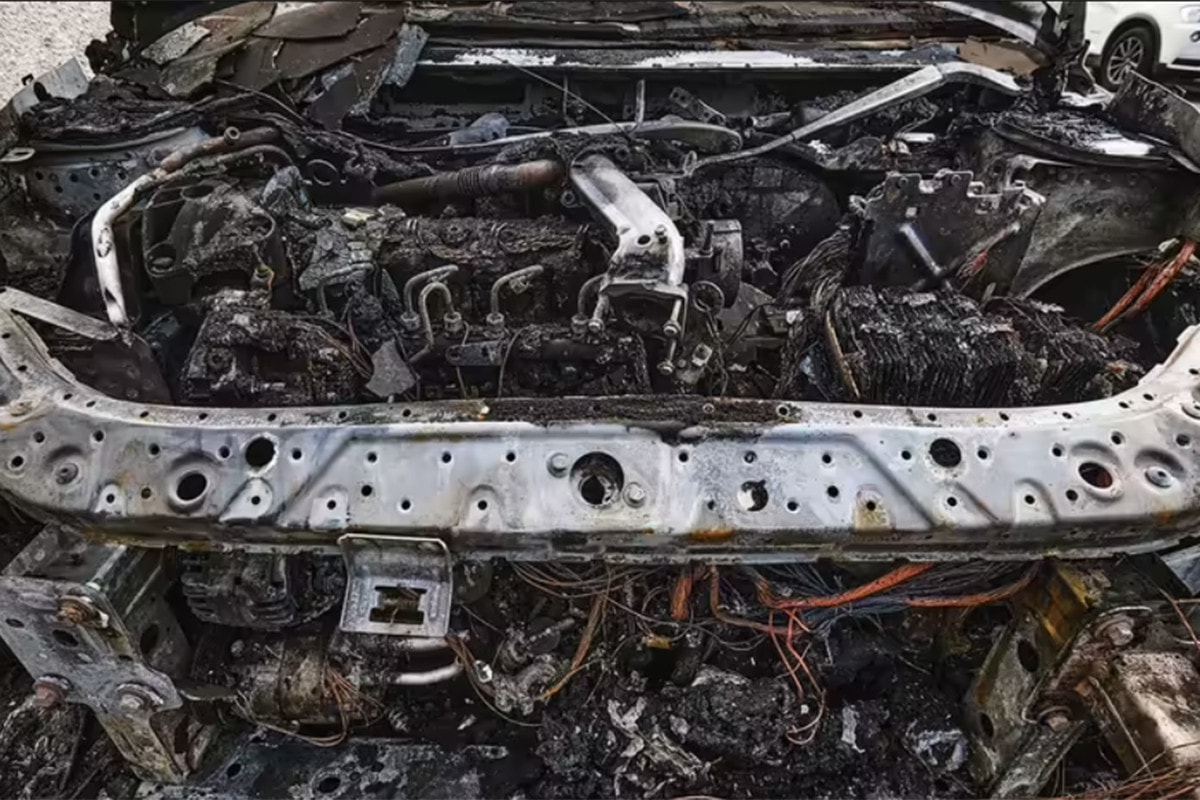 |
Human error is unlikely to be the direct cause of a car fire. But forgetting or neglecting to properly care for your car can indirectly lead to a fire or explosion.
In particular, if you are negligent in maintaining and servicing your car, your car may potentially pose more dangers leading to a car fire. According to the US Fire Department, user error is also one of the leading causes of car fires.
What should car users pay attention to in order to avoid this?
The best way to reduce the risk of car fire is to regularly check the fuel lines, electrical systems and maintain the car periodically according to the manufacturer's requirements.
Avoid "modifying" or installing additional electrical equipment. In case you need to upgrade electrical equipment on the car such as lights, speakers, entertainment screens, etc., you should choose equipment that ensures quality and is performed by reputable centers to ensure technical safety.
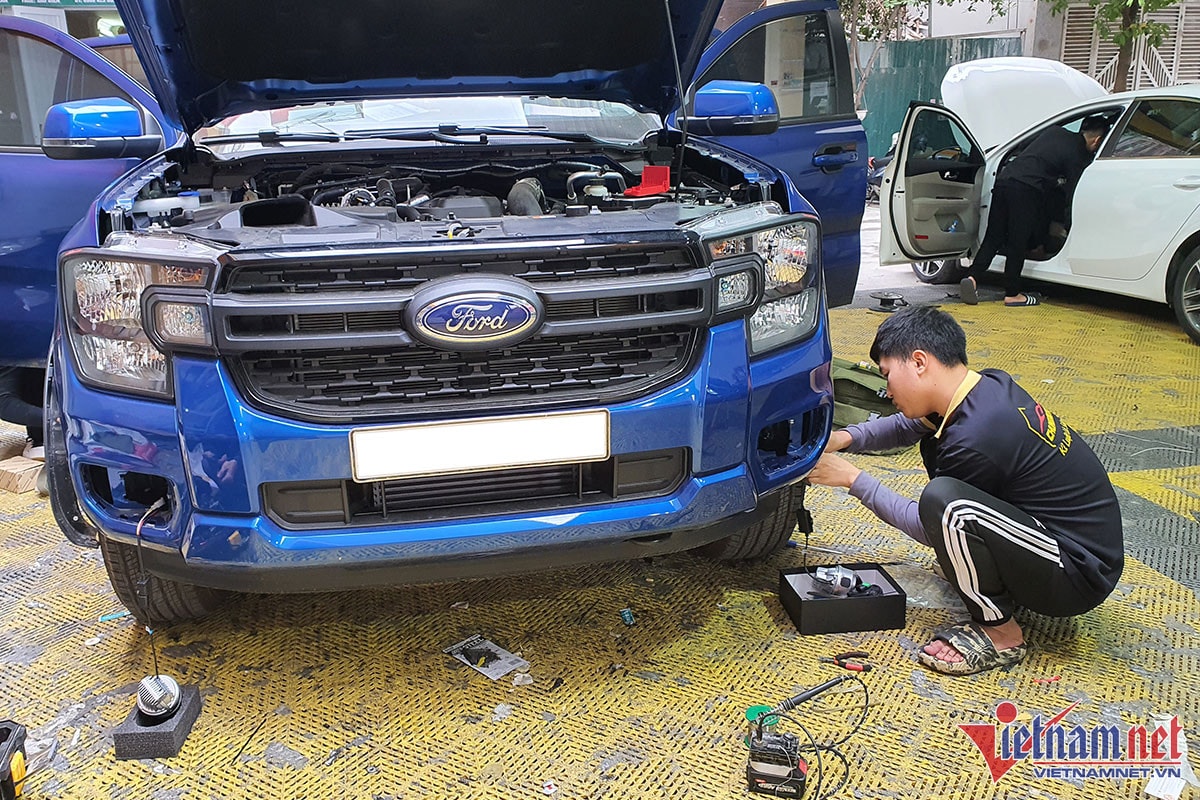 |
In addition, you should also limit parking outdoors in hot weather. According to a study in the US, if a car is parked in hot weather for about 60 minutes, the temperature of the dashboard can increase to nearly 70 degrees Celsius.
Finally, if you ever smell gasoline in or around your car, find and fix the leak immediately.


